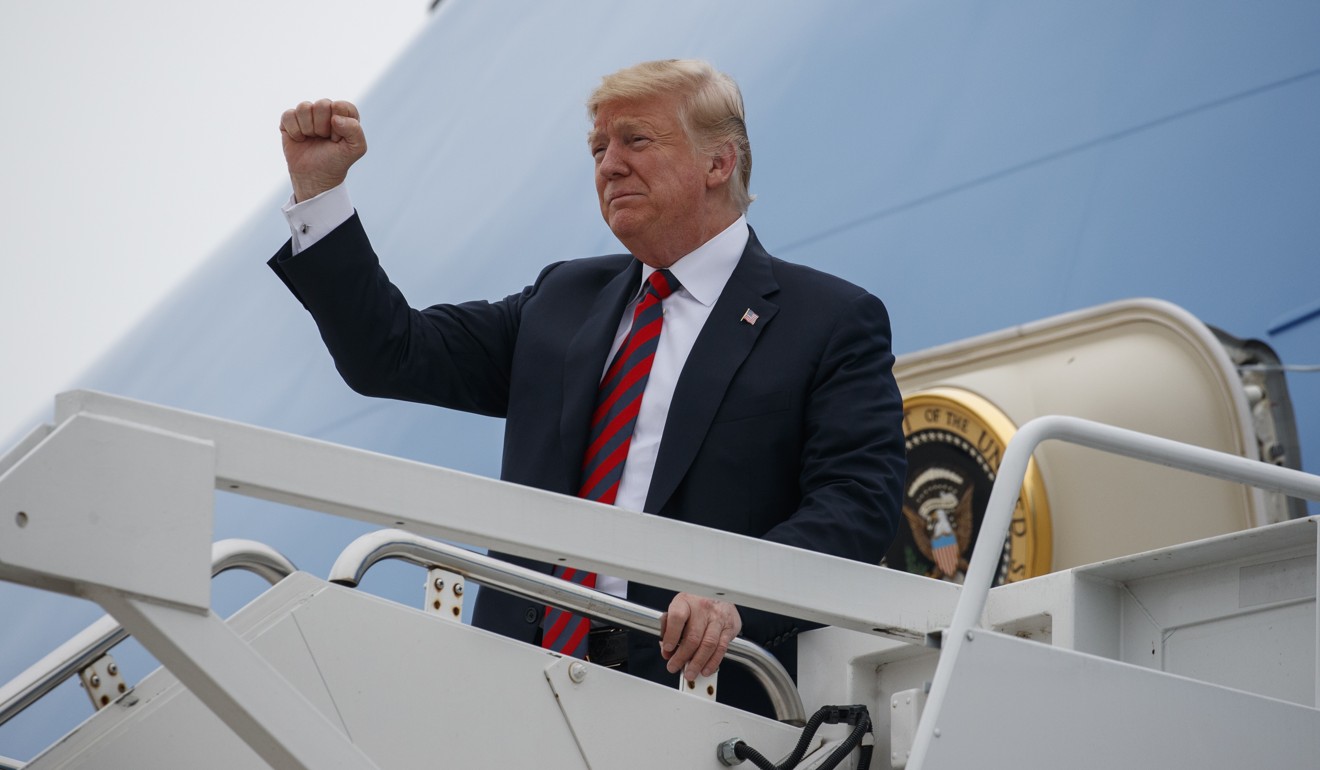
Trade war escalation may trigger financial crisis in China, researchers warn
Study looked at possible scenarios where the US could try to constrain, or even attempt to destroy, China’s financial markets, financial assets and its currency
A further escalation of the trade war between Washington and Beijing to include sanctions on financial products or transactions could trigger a financial crisis in China, researchers warned in a report.
The study – released on Saturday by Renmin University’s National Academy of Development and Strategy – looked at a series of possible additional retaliatory steps the US could take in the trade war to constrain, or even try to directly destroy, China’s financial markets, financial assets and its currency.
While some of the scenarios seem fanciful, and would clearly do the world economy great harm if they were ever implemented, the fact that the think tank chose to examine them suggests concern that the US will stop at nothing to win the trade conflict.
So far, the tit-for-tat trade war between the world’s two largest economies has focused entirely on commercial goods, with both sides having levied 25 per cent tariffs on US$50 billion worth of each other’s imports in July and August. The trade war intensified on Monday after Washington imposed a 10 per cent tariff on US$200 billion worth of Chinese imports, with the tariff rate set to rise to 25 per cent on January 1 next year if China does not make trade concessions. China promised to retaliate with tariffs on US$60 billion worth of US goods.
China accuses US of ‘bullying’ on trade but calls for cooperation
On Saturday, China rejected the US offer to hold more talks to try to resolve the trade dispute. The lack of negotiations has increased uncertainty and put a dent in international investors’ confidence in China’s financial markets, according to the report.

In addition to levying tariffs on yet more Chinese imports, as US President Donald Trump has threatened to do, the US could up the ante and attempt to destabilise local and international markets to put further pressure on China, the Beijing-based think tank theorised.
“We consider two possible changes in direction – that is, when the trade war may no longer be confined to trade and when it could possibly expand into financial investment,” said Wang Xiaosong, a research fellow with the Renmin University academy, in launching the report.
Will the US-China trade war quagmire take as long as the Vietnam war to untangle?
The US could start to sell short the stocks of Chinese firms listing on the US markets – that is, bet that they will fall in value – and use the media to exaggerate weaknesses in the Chinese economy, the report warned. This could put significant downward pressure on those stocks, which include most of China’s big tech companies, like Alibaba and Tencent.
The US could also encourage – and even pressure – US firms to exit their investments in China. The US may target the highly leveraged segment of China’s economy to do damage to China’s financial and property markets, triggering a financial crisis.
The currency market could also take a beating if the US were to take financial positions reinforcing expectations that the yuan would continue to weaken against the US dollar. Such a tactic would likely trigger funds to rapidly move into “safe haven” assets, causing a sell-off in Chinese assets, real estate in particular. This, in turn, could produce massive capital outflows that would cause a systemic crisis in China’s financial system, the report warned.
Trump has made his point with the US-China trade war, now the real work must begin
Internationally, the US may exert pressure on countries in which Chinese firms have made large investments from China, causing significant financial losses for Chinese financial institutions. The report cited as an example the large amount of loans from European banks to Turkey, which are at risk from the US trade dispute with the Turkish government.
The US could also slap hefty fines on Chinese financial institutions based in the US or use its influence over the global financial payments system to cut off Chinese financial institutions from the rest of the world.
Any of these scenarios would add to the pain already experienced by China’s financial markets so far this year.
The Shanghai Composite Index has declined 15.4 per cent since January to the lowest level in four years.
Meanwhile, the yuan has fallen by more than 9 per cent against the US dollar since April, when the US imposed the first tariffs on steel and aluminium, an unprecedented pace of depreciation in such a short period of time.
So far, the Chinese economy has not shown much negative impact from the trade war, though analysts expect that impact to become more evident starting in the fourth quarter.
Still, most analysts expect the impact to be moderate. Last Friday, Fitch Ratings cut its 2019 China growth forecast to 6.1 per cent from 6.3 per cent, citing the uncertainty emanating from the trade war.

